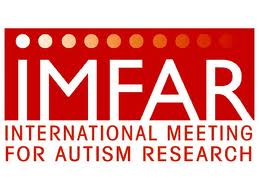 The International Meeting for Autism Research, commonly known as IMFAR, just concluded its annual three-day conference on May 17, 2014. SafeMinds Board and Research Committee Member, Laurette Janak, reviewed the Autism Speaks roadmap of the conference to see what she missed out on. The roadmap can be found here.
The International Meeting for Autism Research, commonly known as IMFAR, just concluded its annual three-day conference on May 17, 2014. SafeMinds Board and Research Committee Member, Laurette Janak, reviewed the Autism Speaks roadmap of the conference to see what she missed out on. The roadmap can be found here.
“Autism Speaks began the conference with a special thank you to the generosity of our community for allowing AS to invest over $200 million in scientific research — which they state goes to “improving methods for diagnosing, treating and supporting individuals with autism.” The thank-you strives to help them fulfill their mission, which states, in part, “Our goal is to change the future for all who struggle with autism spectrum disorders.”
Given the rapid rise in autism, it seems reasonable to assume the majority of preventative and treatment research should focus on the onslaught of chemical exposures our children receive. So a look into environmental interactions with genetic susceptibility or environmental influence to genetic injury seemed reasonable aspects to look for from this conference…
Having a teenage daughter on the spectrum, I wanted to know how IMFAR and Autism Speaks investments would help me treat my daughter to improve her health. The roadmap made many references to better diagnosis and other topics including early behavioral interventions, parental age and even genetics. But clearly, these studies won’t likely help me with my daughter’s future health. I was surprised to find a total of eleven presentations alone on sex differences found in autism spectrum disorder (nine poster presentations (posters: 44,64,139,65,48,77), one oral presentation (166.007) and one scientific panel discussion (183.002)). Again, I was bewildered by how such knowledge would help improve my daughter’s health. So, I looked even deeper into the roadmap to find out what environmental exposures may have contributed to her condition.
From the roadmap alone, it’s difficult to determine if a particular presentation touched on the environment since all one has to go on here are titles. None-the-less, I looked for titles mentioning environmental exposures. I found five posters (posters: 49, 57, 123, 134, 55) and one Satellite event that took place on Friday May 16th from 5:30- 9:30 PM. I’m curious to know what the 4-hour satellite event was about, but I guess this will need to remain a curiosity unless IMFAR produces a post-conference summary for me.
I found poster presentation 123 had the title: “Integration of Environmental Variables into Autism Genetic Repository Data”. This looked like a step in the right direction since we now know significance of impacts to our health from environmental chemical exposures. But it left me wondering why poster 123 wasn’t actually the keynote theme of the conference?
Many well-documented health outcomes found with an autism diagnosis exist including: immune abnormalities, (including autoimmunity), mitochondrial dysfunction, gastrointestinal problems, inflammation and oxidative stress. I thought maybe they covered some of the modalities to help treat these in ASD teenagers – such as my daughter. Perhaps I may have overlooked it, but I couldn’t find any mention of most of these with the exception of posters 73(anti-brain antibodies), 102 (oxidative stress and immune cytokines) and 192 (clinical trial of folinic acid).
I guess for me to understand the best means to treat my daughter’s biomedical challenges to improve her future, I can’t rely on organizations such as Autism Speaks to do the research for me.
As a result, I‘ll have to rely on my own parental research into this. The following essay outlines what I‘ve discovered over my 19-year investigation into autism. Much of what I write is consistent with the increase in medical conditions found in adults as IMFAR presenter Lisa Croen discussed in her video clip. Dr. Croen is an epidemiologist with Kaiser Permanente Division of Research. Please be sure to read Laurette’s essay into linkages between environmentally-related health issues and improving long-term outcomes for autistic individuals.
 Laurette Janak is a parent-researcher and mother of a child on the autism spectrum with Down syndrome and leukemia, Laurette Janak has been assisting the research community in their quest to unravel the mysteries of ASD in our children. She helped coordinate and co-authored a study on metabolic biomarkers and impaired methylation capacity in children with autism published in the American Journal of Clinical Nutrition in 2004.
Laurette Janak is a parent-researcher and mother of a child on the autism spectrum with Down syndrome and leukemia, Laurette Janak has been assisting the research community in their quest to unravel the mysteries of ASD in our children. She helped coordinate and co-authored a study on metabolic biomarkers and impaired methylation capacity in children with autism published in the American Journal of Clinical Nutrition in 2004.


